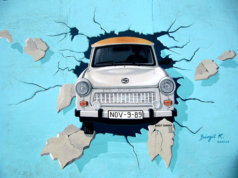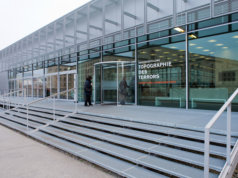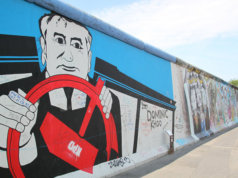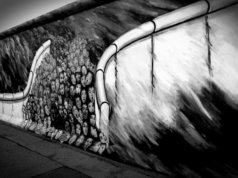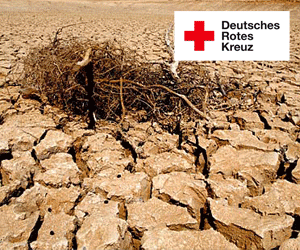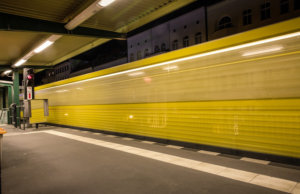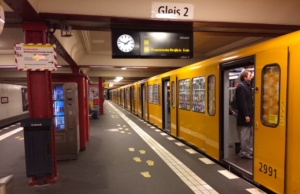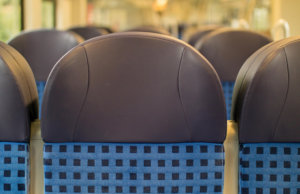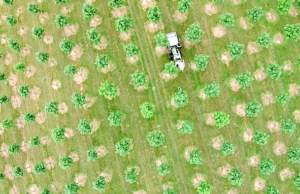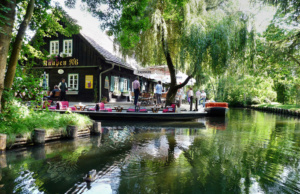The Berlin Wall divided the city for 28 years. With nearly as much time passed since the reunification in 1990, the Berlin Wall Trail is one journey you don’t want to miss.
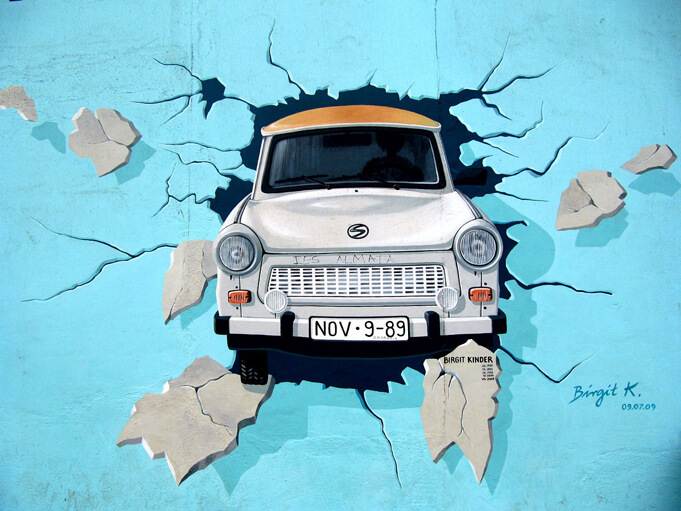
Founding the Berlin Wall Trail
The barrier consisted mostly of two concrete walls. The are between was known as the “death strip”. This was full of tools to stop those looking to cross—guard dogs, watchtowers, anti-vehicles trenches, floodlights and trip-wire machine guns.
During this period, more than 100 people died trying to cross. Now, the remnants of the wall provide a guide to explore the city and surrounding area.
Opening in 2004, the Trail is built along the former patrol roads used by the East German border guards. In total, the trail measures 160 kilometers—indicated by the sign “Berliner Mauerweg”.
18 of those kilometers are directly through the city, along the former line that divided the urban area in the post-war years. The rest of the trail guides visitors into Berlin’s vibrant natural environment.
The trail can be explored on foot. To allow for shorter day trips, the route has been divided into 14 individual sections, easily reachable by public transport. To see a bit more, visitors can also travel the trail on a bicycle path.
Where to start the tour?
You can easily start the tour wherever you want. Bikes can be taken on the city’s public transport network, which means you can start all the way in the trees of the sprawling Spandau forest if that’s what your interested in.
Highlights of the Berlin Wall Tour
The Berlin Wall Memorial
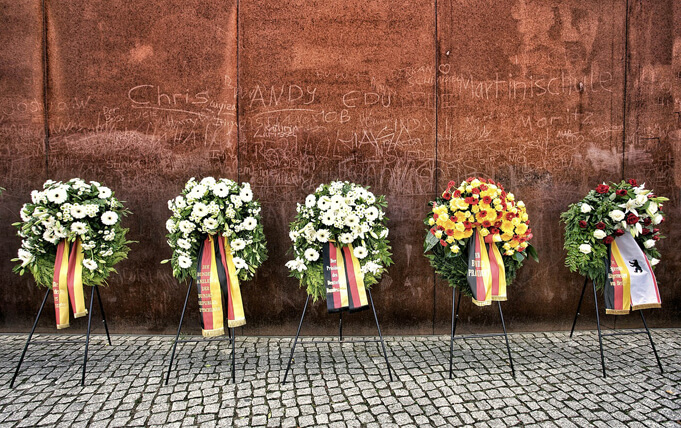
This 1.4 km strip follows the Wall’s former location along Bernauer Strasse. It illustrates how the border fortifications were constructed and pays homage to the people who fled East Berlin and victims of the death strip.
Cobblestone Markings
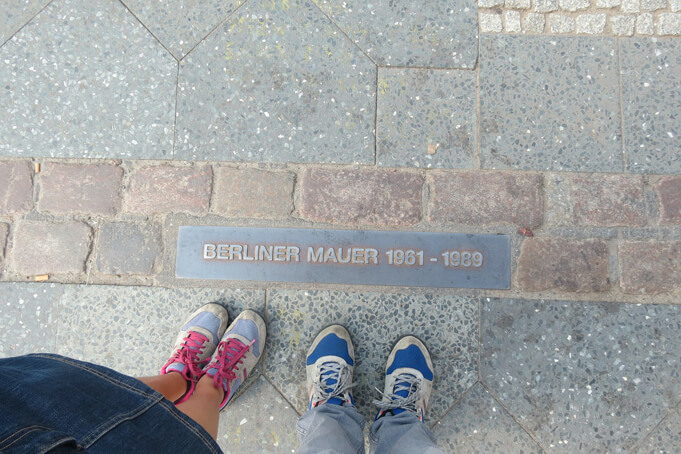
The lines of cobblestones help to identify the location of the Wall in the city center. After reunification, both the West and East Germans were quick to remove all traces of the Wall, so it is not continuously documented.
The Brandenburg Gate
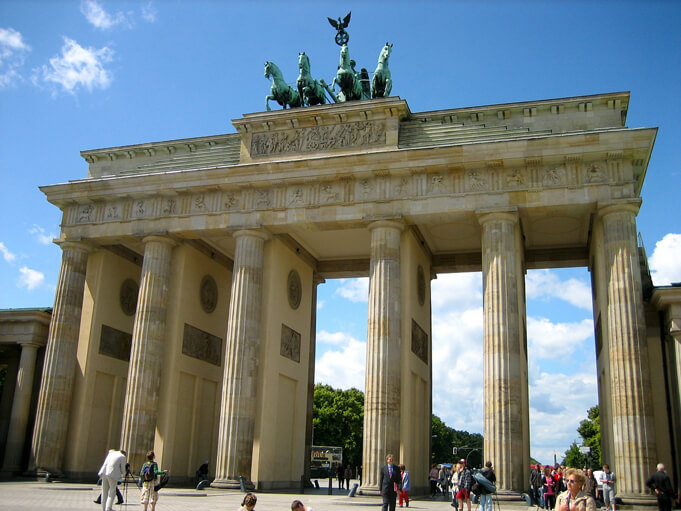
An icon of Berlin, the Brandenburg Gate is located in the government district by the Spree River. During separation, it was in “no-mans land”. The Wall officially blocked it from West Berlin and a smaller wall also restricted access for the East Germans, too.
Checkpoint Charlie
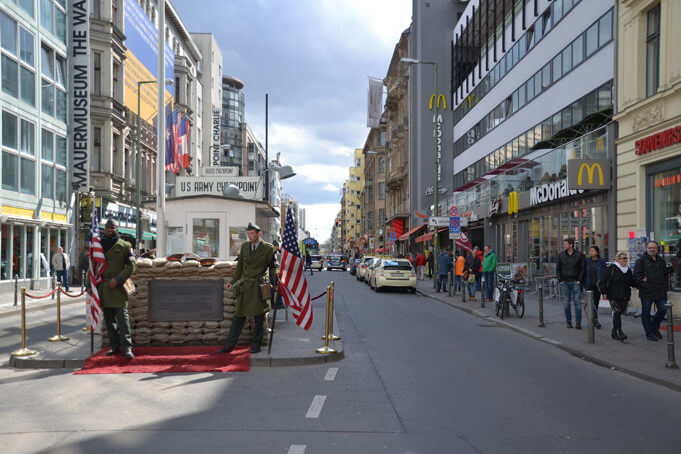
The most famous former crossing point between east and west is known as Checkpoint Charlie. Now, it’s a spot where tourists flock. Actors dressed as military policemen pose for photos and there is even a replica of the famous sign “You are leaving the American sector”.
Watchtower near Potsdamer Platz
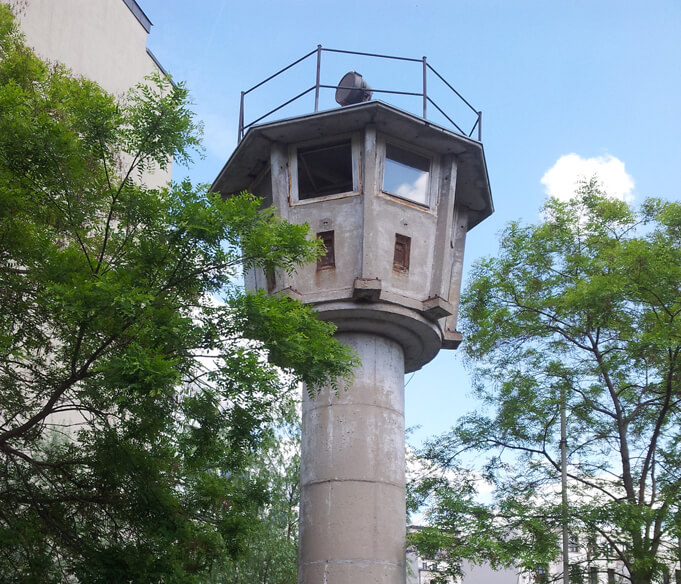
Of the more than 300 watchtowers used by guards to try to catch people leaving East Berlin, only a few remain. One is the platform near Potsdamer Platz, now a historical monument.
East Side Gallery
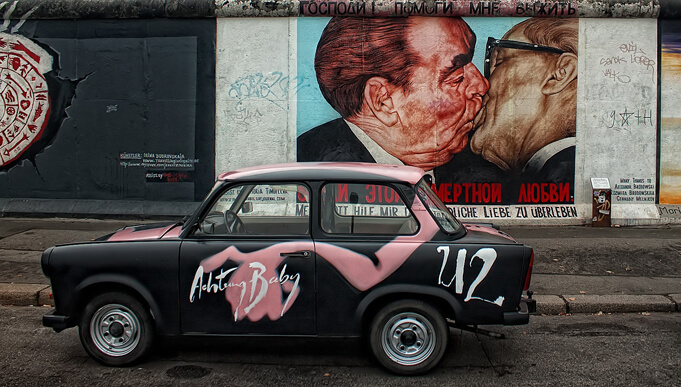
As one of the largest open-air galleries in the world, the East Side Gallery is a true highlight along the Berlin Wall Trail. International artists painted this 1.3-kilometer stretch of wall that remained in 1990.



